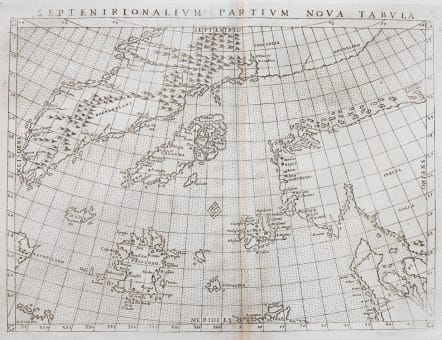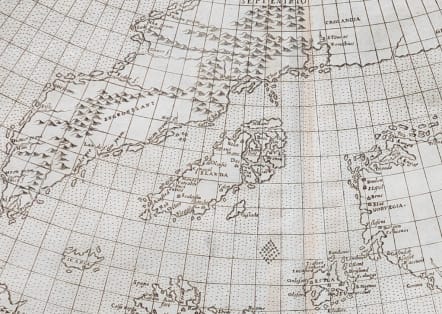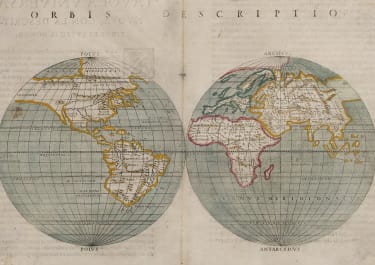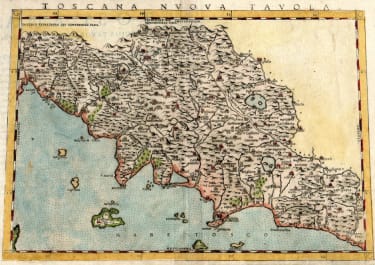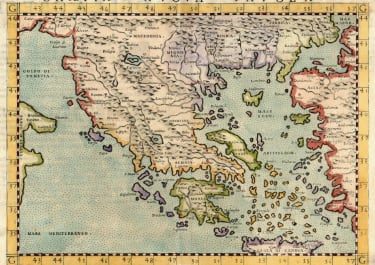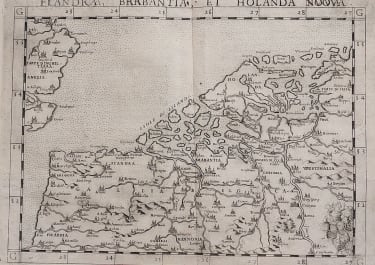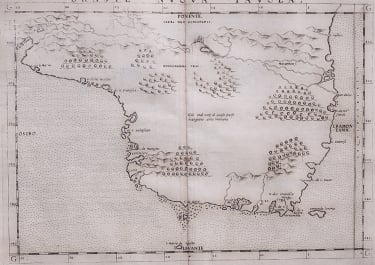SEPTENTRIONALIUM PARTIUM NOVA TABULA
Sold
First state & edition of Ruscelli's spectacular "Zeno" map of the North Atlantic after the map in a 1558 travel book about a (false?) voyage in 1380 to these areas by Nicolo and Antonio Zeno. The map introduces many new fictitious islands in great detail like "Frisland" (with 32 places and capes named!), "Deogeo", "Estotiland", "Estland", and the monastery of "S. Tomas" in Greenland. Many of these fictions remained on maps for centuries, mainly because Gerard Mercator accepted it as authentic and adopted much of it in his famous large 1569 world map and his 1595 map of the North Pole. Ortelius in turn used the map as a prototype for his map of the North Atlantic.
Among the mythical islands shown, Frisland in particular had a long cartographic life. Many later maps continued to show it, some with exquisite detail and even locating its capitol city.
Strong and even imprint of the copperplate. Wide margins. An excellent collector's example of this important map.
Very good condition
ref Burden P: 'The Mapping of North America' 29
code : M4509
Cartographer : RUSCELLI Girolamo
Date : 1561 Venice
Size : 18*24.5 cms
availability : Sold
Price : Sold
Girolamo Ruscelli (1500s-1566) was an Italian polymath, humanist, editor, and cartographer active in Venice during the early 16th century. Ruscelli is best known for his important revision of Ptolemy's Geographia, which was published post humously in 1574. It is generally assumed that Alexius Pedemontanus was a pseudonym of Girolamo Ruscelli. In a later work, Ruscelli reported that the Secreti contained the experimental results of an ‘Academy of Secrets’ that he and a group of humanists and noblemen founded in Naples in the 1540s. Ruscelli’s academy is the first recorded example of an experimental scientific society. The academy was later imitated by Giambattista Della Porta, who founded an ‘Accademia dei Secreti’ in Naples in the 1560s.

